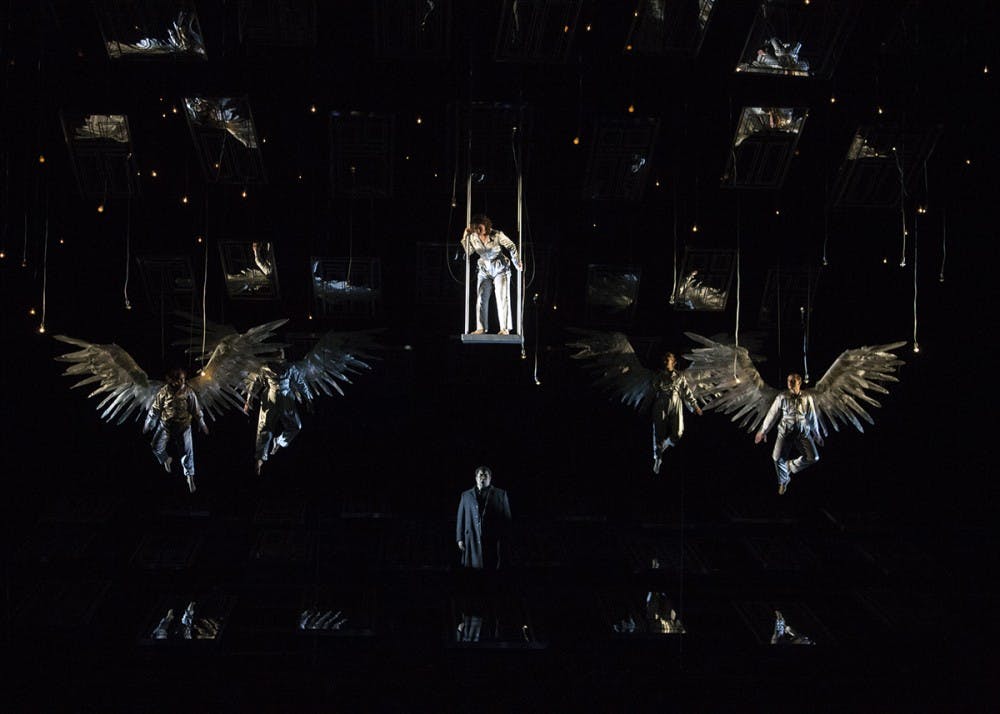From the TV screen to the stage, George Bailey is helping angels get their wings in “It’s a Wonderful Life.”
“It’s a Wonderful Life” will be performed from November 10-17 at the Musical Arts Center. Tickets start at $12 for students.
Based on the 1946 holiday classic, the opera follows George Bailey and his emotional struggle with lost dreams and financial ruin at the bank he runs. Told through the eyes of his guardian angel Clara, the story begins as she saves George from committing suicide by jumping off a bridge. After George wishes he were never born, Clara takes him through a series of flashbacks that demonstrate how different life would be without him.
“It’s a tale of redemption and grace of someone who has had life go against him in every way,” Edward Atkinson, the actor playing George Bailey and a grad student studying vocal performance, said. “He’s shown by this angel that his life is still overflowing with love and goodness.”
In one of their flashbacks, Clara and George see George giving out loans to people who can’t afford to pay them so they can have houses. However, profit-oriented banker and antagonist Mr. Potter is more interested in money than human dignity and starts interfering with George’s work.
“He realized how many people he had affected just by being there,” said Anne Slovin, actress playing Clara and grad student studying vocal performance.“One of the wonderful messages of the story is that you’re never actually alone.”
In older operas, story development follows a pattern — something happens and characters sing about it. However, a contemporary opera like “It’s a Wonderful Life” has a faster pace.
“What happens in this opera is, as they’re singing, something is happening,” Atkinson said. “So it is an opera absolutely built for modern audiences.”
The opera’s genres include jazz, ragtime and patriotic hymns, all falling in line with the '30s and '40s musical styles.
“It’s definitely very friendly and easy to listen to,” Atkinson said. “There’s so many beautiful moments between the cast members. Some of the most beautiful music I’ve heard in my life.”
The music itself, written by Jake Heggie, is important to the storytelling in ways similar to theater, Slovin said.
“He creates music, both melody and orchestral textures, that really create theater, really create drama,” Slovin said. “It isn’t just that it’s theatrical music, it’s music that will grab the audience. They can latch onto it.”
The writer, Jake Heggie, and librettist of the opera Gene Scheer were present throughout the rehearsal process. Singers had the opportunity to get input directly from the writers about how to approach their characters, something that can’t happen with classical works.
“Being able to just ask the composer is an incredible experience,” Slovin said. “You could just walk up to them and say, ‘Hey Jake, what did you mean when you wrote this?’ Jake was able to sit us down and say, ‘Here’s how you act that.' You can’t just ask Mozart.’”
Whether going for movie nostalgia, for the music or for the holiday feeling, audience members should expect to experience emotions, Slovin said.
“It’s a drama and a romance,” Slovin said. “Watching George kind of fall apart and be redeemed and find out what’s really important in his life is really moving.”



